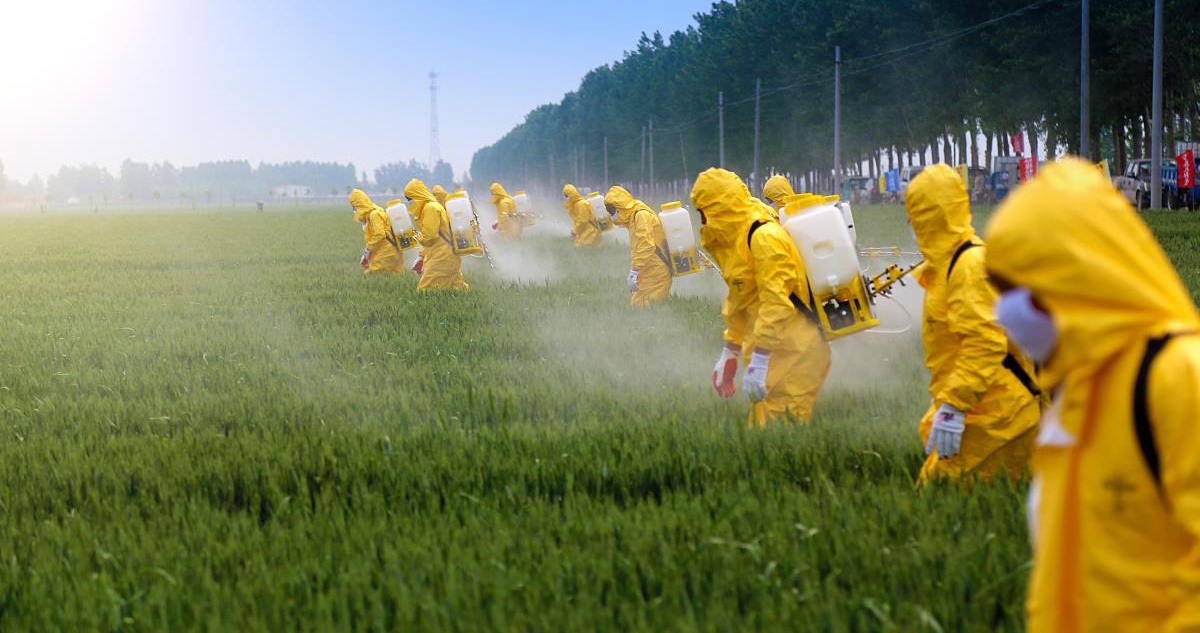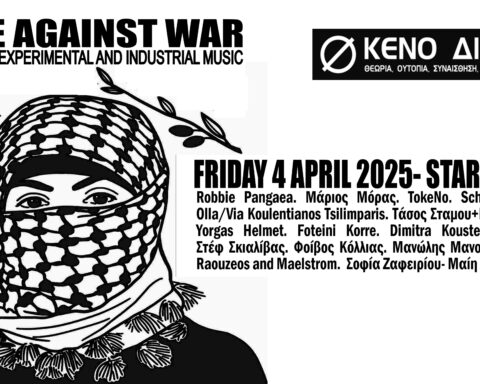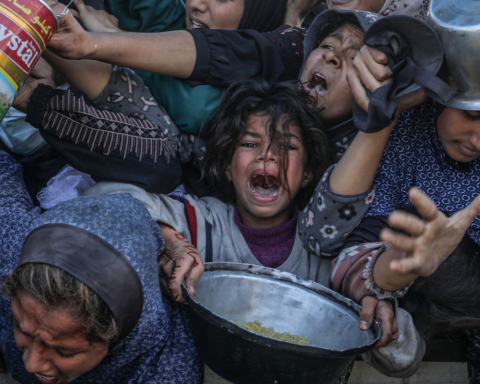VOID NETWORK (Athens-Greece) written by Gene Ray and George Sotiropoulos
“Seek ye first for food and clothing, then the kingdom of God will fall to you also”
G.W.F. Hegel, letter to Knebel, 30 August 1807
We watch in horror, as the global explosion of the Sars-CoV-2 virus continues. The spreading medical emergency starkly reveals the real wages of neoliberalism and its extractive austerities. Gutted national healthcare systems that put profit over lives have left millions of people without access to medical care – a de facto death sentence for many. Every day now, we see where that leaves us in a pandemic. The healthcare crisis unfolds within a larger context of crisis: the underlying economic crisis of late capitalism and the planetary ecological crisis of late capitalist modernity. In the Covid19 emergency, the next crisis to arrive, before the medical crisis is over and just as the economic one begins to kick in, is likely to be a crisis in the capitalist food system.
The growing, picking, processing, packing and delivery of our food is vulnerable at many points in the long supply and delivery chains that stock the shelves in our grocery stores. Farmworkers, food processors and delivery workers are asked to work in unprotected conditions that often make social distancing impossible. Pickers on the industrial farms, many of whom are undocumented or precarious migrants, typically travel from squalid work camps to the fields in tightly packed buses. Workers at Amazon, the largest corporation dominating the end-delivery chains, have begun walkout strikes as Covid19 spreads through their warehouse workplaces. It is hard to see how breaks and bottlenecks in the global flows of food will be avoided without cynically sacrificing the workers who feed us. We need to understand and anticipate this, because food is at the center of life and social reproduction. The struggles for food sovereignty that will soon come to the fore will not only help to keep us alive – they highlight values of care, mutuality, gender equality, and climate and environmental justice that can orient the fight against fascism and the refusal to go back to normal, when all the dead are buried. If the Covid-19 pandemic is pushing us to think an alternative form of social and natural symbiosis, food production is an essential facet of this operation, even more, a nodal point for its utopian and practical dimensions.
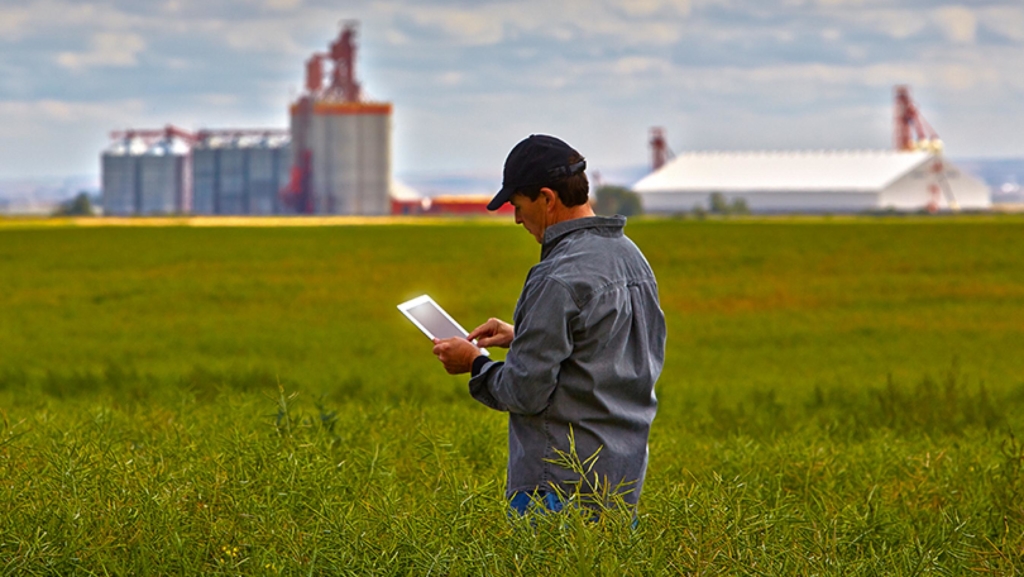
For an End to Big Agriculture
The capitalist food production system is ecocidal and genocidal; paradoxically, extinction is its immanent drift. The rupture of Covid19 is at least an opportunity to overthrow a destructive and unsustainable mono-industrial paradigm and replace it, everywhere, with more localized systems of polyculture and agroecology. Founded on the 17th century slave plantation system and forced on the world from the 1950s on under the obscene misnomer “the green revolution,” the current capitalist food system is dominated by large transnationals that grow cash crops for export on huge monocultural farms and neo-plantations. These “Big Ag” monopolies are fossil fuel dependent, are heavy with pesticides and chemicals, waste precious water (70-90 % of all freshwater used by modern society!), drive bees and other needed pollinators as well as birds and other small predators to collapse and extinction, and discharge toxic runoff that causes red tides and dead zones when it reaches the seas. Moreover, capitalist food production is fully implicated in driving global warming and climate chaos:
Agriculture is also the largest single source of greenhouse gas emissions from society, collectively accounting for about 35 % of the carbon dioxide, methane and nitrous oxide we release….The energy used to grow, process and transport food is a concern, but the vast majority of emissions comes from tropical deforestation, methane released from animals and rice paddies, and nitrous oxide from over fertilized soils.
We must add that this food system, which eats its own tail in a classic dialectic of enlightenment, is embedded in imperialist relations. More or less in step with the rise of neoliberalism, the World Bank, IMF and Big Ag capital have forced every country in the world to attack its bases of food sovereignty in small-hold farming and to chain itself to the world commodity markets. The global debt system was the lever to force this new phase of “original accumulation,” with deadly applications of violence to repress local resistance to these new enclosures, especially in the Global South. All this arrives every day, in our kitchens and on our plates! The idiocy of this “consensus” may soon be returning to haunt us, just as the idiocy of destroying public health structures returns in the continuous blare of sirens around New York City’s overwhelmed hospitals. Finally, in what should be the nail in the coffin of capital’s control over our food, Rob Wallace, author of Big Farms Make Big Flu, has taught us exactly how the capitalist food system is implicated in the cross species jumps that loosed Sars-Cov-2.
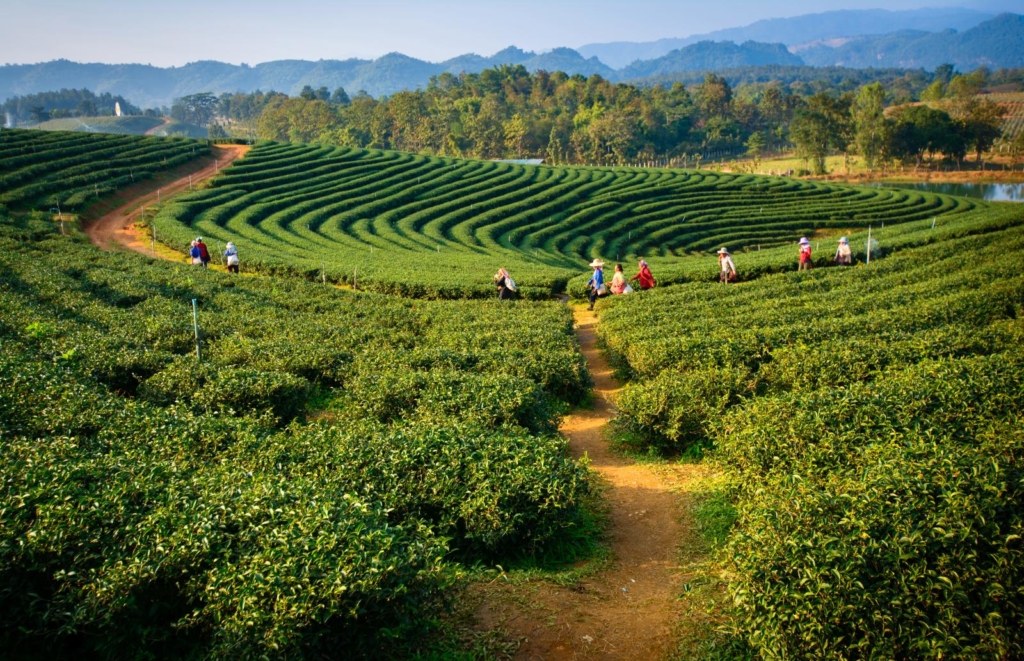
For Agroecology and a Food Sovereignty Popular Front
There are better ways, and the struggles to defend and spread them have been ongoing for many decades – indeed, as our Indigenous comrades tell us, for 500 years! Traditional growing practices preserve hard-won local experience and knowledges and tend to work with, rather than try to dominate, local ecologies. As a result, their decentralized polycultures are far more sustainable, frugal, versatile and resilient – just what we need in our food systems in a time when climates are weirding in response to capital’s flogging of the planet. In Europe and the Global North, organic “foodies” and Slow Food enthusiasts are often perceived as luxury hobbyists of the privileged classes. In fact, these lifestyle trends are distant echoes of the intense grassroots struggles for food sovereignty being waged across Latin America and Africa by the largely Indigenous-led network La Via Campesina, in Brazil by the Marxist-inspired Landless Workers’ Movement (MST), and in India by numerous peasant movements.
La Via Campesina in particular has coined and elaborated the idea of food sovereignty into a program for justice from below. It claims an inalienable right of all peoples to define and realize their own food systems, and to defend those systems from coercive invasions and extractive enclosures by imperialist capital. The international network of small and cooperative farmers, peasants, pastoralists and fisherfolk have also worked out and broadcast a body of practices and values they named agroecology. Similar in some respects to permaculture, agroecology embodies a whole approach to social reproduction based on values of care, mutuality and – let’s not be afraid of the word – kinship with the natural world. Many scientists have understood that agroecology offers more sustainable practices than industrial monoculture, and as a result the UN has to some extent appropriated and advocated for the concept, giving it a top-down, technocratic inflection that La Via Campesina has had to criticize. Agroecology is not just a set of practices that can be monetized for profit or adopted without changing anything else in anthropocentric, patriarchal capitalist class society:
Agroecology is a way of life of our peoples, in harmony with the language of Nature. It is a paradigm shift in the social, political, productive and economic relations in our territories, to transform the way we produce and consume food and to restore a socio-cultural reality devastated by industrial food production. Agroecology generates local knowledge, builds social justice, promotes identity and culture and strengthens the economic viability of rural and urban areas.
The urgent point is this: the knowledge commons for sustainable local alternatives to capitalist food production already exist and are readily accessible and sharable. Certainly, agroecological and permacultural approaches are possible in Greece. We only need to ensure that collective projects in this direction are grounded in solidarity with grassroots struggles for food sovereignty and climate and environmental justice – and in a communist horizon for a just and classless world. This is also to say, that acro-ecology is not a backward-looking idealization of the past, it is a forward-looking practice that can be in tune with the best aspects of the current techno-scientific knowledge and capacities.
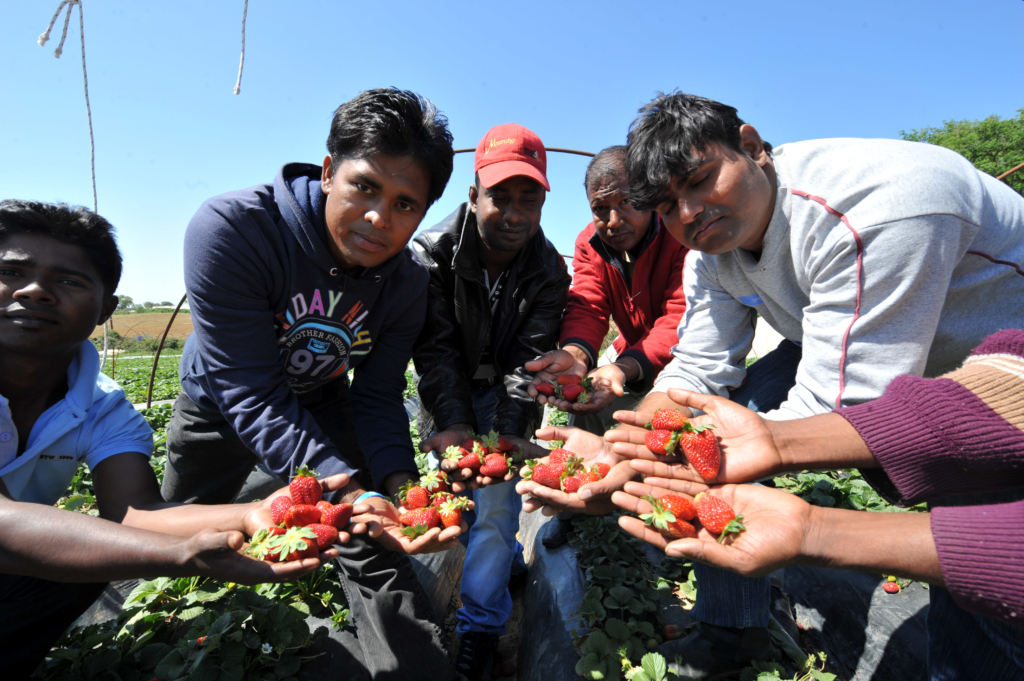
Food Sovereignty, Migrant Rights and Anti-Fascism
In the current crises, the struggle for food sovereignty brings forward the exploitation of migrant farmworkers and links up directly to the current terrain of anti-fascist struggle. As already noted, the workers whose labor power is exploited in the fields, slaughter yards and packing houses of capitalist agriculture are very often undocumented or precarious migrants whose status makes them especially exposed to extreme exploitation and coercive violence. Certainly this is true in Europe and many parts of North America. Their workplaces were always likely to be toxic, but now with Covid19 they are often forced to labor in mortal danger. Adequate protections, including face masks, gloves, sanitation gear and testing is a matter of life and death for the women and men who bring our food to table.
We can and must say more: racist anti-migrant and anti-refugee scapegoating is the common denominator of the hard-right turn in global politics. Indeed, racist nationalism dominates the toxic concoction that is resurgent fascism, and has been widely adopted in the rhetoric and policies of rightist governments around the world. This turn reflects tendencies towards authoritarian statism that, among others, have been long developing and were noted and forecast decades ago by Nicos Poulantzas. And it now unfolds in a situation of multiple systemic crises whose class character was vividly described by Mike Davis as a “planet of slums” and whose political logic Christian Parenti has analyzed incisively as “the politics of the armed lifeboat,” which tends towards full-blown “climate fascism.” Such is the moment we live in. We need to be clear about the links between all of these crises and social struggles, and shape our actions across them.
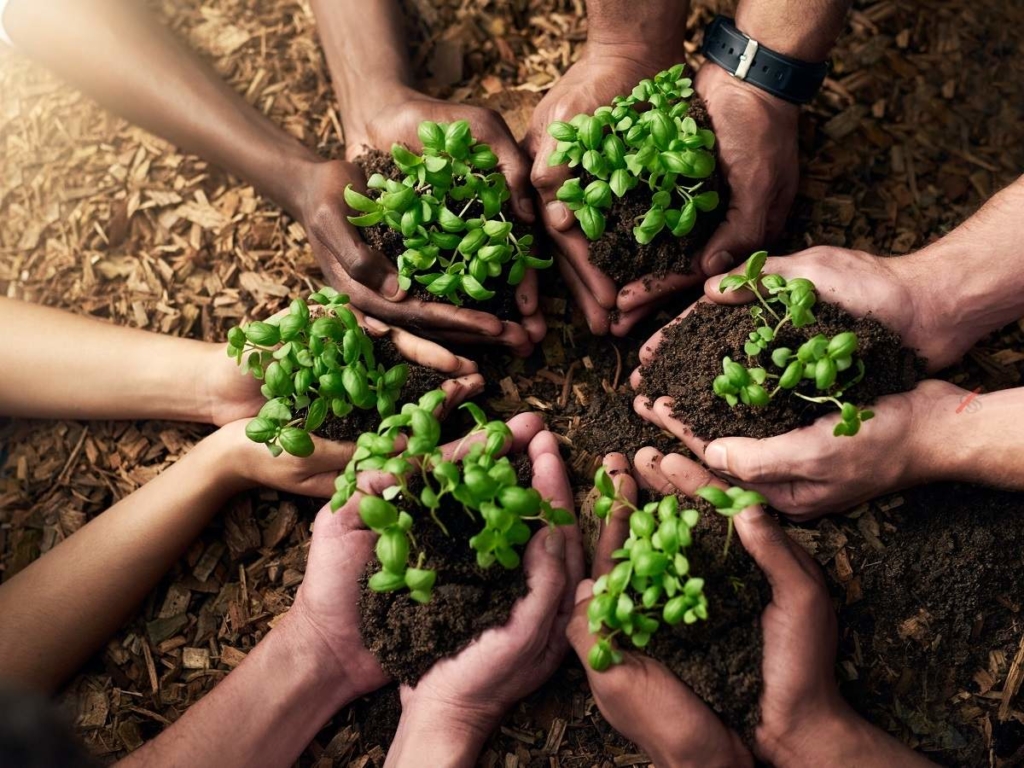
Toward Dual Power
Food sovereignty is the material and metabolic basis for an organized counter-power to capitalist terror and climate fascism. There have been many helpful discussions of mutual aid and calls for dual power initiated by autonomist comrades in the social emergency of Covid19. And Marxist feminist comrades have called for us to meet the emergency with a “social reproduction revolution.” Now we need to anticipate the coming crisis of the capitalist food system, and begin discussing how we will prepare our reaches for food sovereignty. To consider this a backup plan to help get us by in lean times misses the point. The dominant capitalist classes are certainly preparing to force us back into our places, however far this deadly pandemic goes. Before it exploded, anti-austerity insurrections were already rocking the global system; for the moment the solidarity of social distancing has emptied our streets and arrested the face-to-face and breath-to-breath forms of our politics. This will change, but fallout from Covid19 is still just beginning. The danger of disruptions to the food supply and delivery chains is real, for the reasons indicated above. Even in social distancing, we need to begin the discussions about what we will do, if that happens. Bread riots, a trigger of past revolutions, will come; will there also be pitchforks?
The rupture in normality also brings its opportunities – call it “disaster communism” or whatever you like. Many are aware now, and many more are learning it through the pandemic, that capital’s logic of accumulation is a dead end – literally as well as metaphorically. Degrowth, with a communist-autonomist horizon, is the actual imperative, given the deep structural crisis of planetary meltdown. Degrowth does not mean primitivism nor it is against the development of humanity’s creative forces. It means sustainable symbiosis, thus, a different form of social and environmental justice. Neo-fascism will be the form of desperate violence aiming to block any social transition that threatens capitalist class power. We know this. Either we resign ourselves to go back to our places and work away at our own mutual destruction, or we push this break further, exactly where social reproduction meets anti-fascism and anti-imperialism.
Growing tomatoes, herbs and earthworms on the balcony is no doubt a wonderous thing. But what is called for now is to collectivize the possibilities in all directions. The point is that food sovereignty is the material and metabolic (energy) basis for everything else, as we would quickly realize if we began to go hungry. Agroecology and permaculture are real possibilities in Greece, which need to be explored and built out from below. Some comrades are already actively engaged in this direction. And again: this can’t be a mere withdrawal to rural communes, it has to be a reorientation that feeds the struggles. For now, we should start discussing and sharing knowledge and practices and brainstorming possibilities.
Simple models for collectivizing growing can be organized among friends and small groups and planted wherever there is access to land. Access may be through family plots in villages or, in extremis, by other direct and time-tested means. Growing co-ops can be set up to share the work on a part-time basis, as was done before in many difficult moments of history. Urban gardens will undoubtedly be appearing in unexpected places. The deeper values of agroecology, in their close connection to social struggle and the long resistance to capitalist enclosure, can orient this turn. Whatever happens, we should build out these possibilities as far as we can, because doing so will both support and enact the politics of solidarity and mutuality that we believe in.
VOID NETWORK (Athens-Greece) written by Gene Ray and George Sotiropoulos
*George Sotiropoulos is Doctor of Political Theory and author of A Materialist Theory of Justice: the One, the Many, the Not-Yet.
*Gene Ray is Associate Professor of Critical Theory and author of Terror and the Sublime in Art and Critical Theory: From Auschwitz to Hiroshima to September 11 and Beyond.
________________________________
SEE ALSO
Sustainable Ways of Living: Food Production & Distribution- Mutual Aid
Interviews with comrades in Frankfurt practicing collective food production and alternative ways of distribution based on mutual aid and social awareness, experimenting with ecological, alternative and sustainable ways of living. Research by VOID NETWORK / Tasos Sagris & Sissy Doutsiou https://voidnetwork.gr
